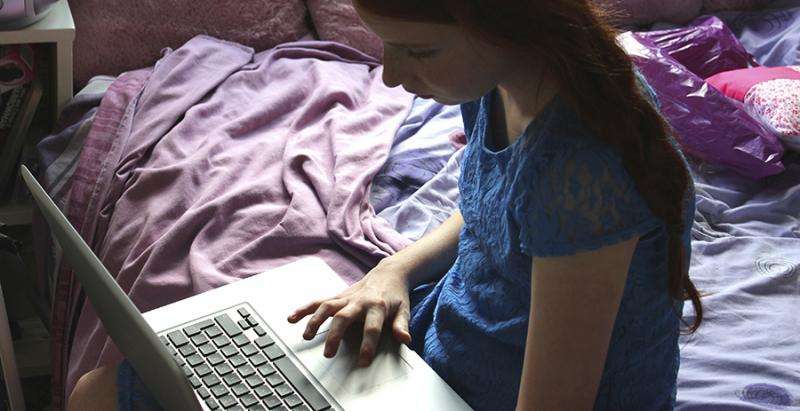Less than 20 percent of parents supervise children's online activity

New research released by the National Anti-Bullying Research and Resource Centre at Dublin City University, ahead of Safer Internet Day (9th February), has flagged up some worrying trends in internet safety for Irish children, and has been welcomed as a "wake up call" by many of the research participants.
While Irish parents perceive themselves to be vigilant in monitoring computer and internet usage, there is an over-reliance on their children giving them accurate accounts of their online activity – especially on social media, where only 18% of parents supervise activity. And while many children may show honesty in this area, there is also a well-established "digital deceit" pattern in pre-teen and teen dealings with their parents that can leave them vulnerable online, especially to cyberbullying.
The digital gulf is also evident in the different social media platforms parents and children use. While over half of parents do engage in social media such as Facebook, they have almost no interaction with Twitter, Instagram or Snapchat, which are the platforms of choice for their teen and pre-teen children. A lack of technical knowledge - 40 % lacked basic security measures, 52 % had no knowledge about more advanced privacy techniques such as search engine filters - adds to the feeling of distance from their digital native children.
Adding to the digital divide is that time is also likely to be a limiting factor for parents trying to monitor online usage, when you consider that the average 15-16 year old will spend up to 10 hours a week online on their devices.
"Our research underscores the growing challenges and pressing need to create protections around children from cyberbullying," explains Dr James O'Higgins, Director of the Anti-Bullying Centre at DCU, whose team is currently developing a new online tool to combat cyber bullying in conjunction with the EU Erasmus Parentsnet project. (www.parentnets.com)
"While many of the parents surveyed said they had talked to their children about the areas of concern – exposure to inappropriate or toxic content, cyberbullying, safety and security - the vast majority still had very real concerns about their children's levels of vulnerability online. For many, taking part in the survey acted as a wake-up call, flagging up significant areas where vigilance could be improved."
Ahead of Safer Internet Day on Tuesday (9th February), Dr O'Higgins reiterated the following advice to parents concerned about internet safety and cyberbullying:
- Talk and listen to your children about their use of internet and social media
- Set up email and chat accounts with your children. Make sure that you know their screen names and passwords and that they don't include any personal information in their online profiles.
- Take time to discuss cyberbullying and online harassment with your children and do not be afraid to ask them if they have ever been involved as a bully, victim or bystander
- Tell your children that you won't blame them if they are cyberbullied. Emphasise that you won't take away their computer privileges - this is the main reason kids don't tell adults when they are cyberbullied.
Provided by Dublin City University
















